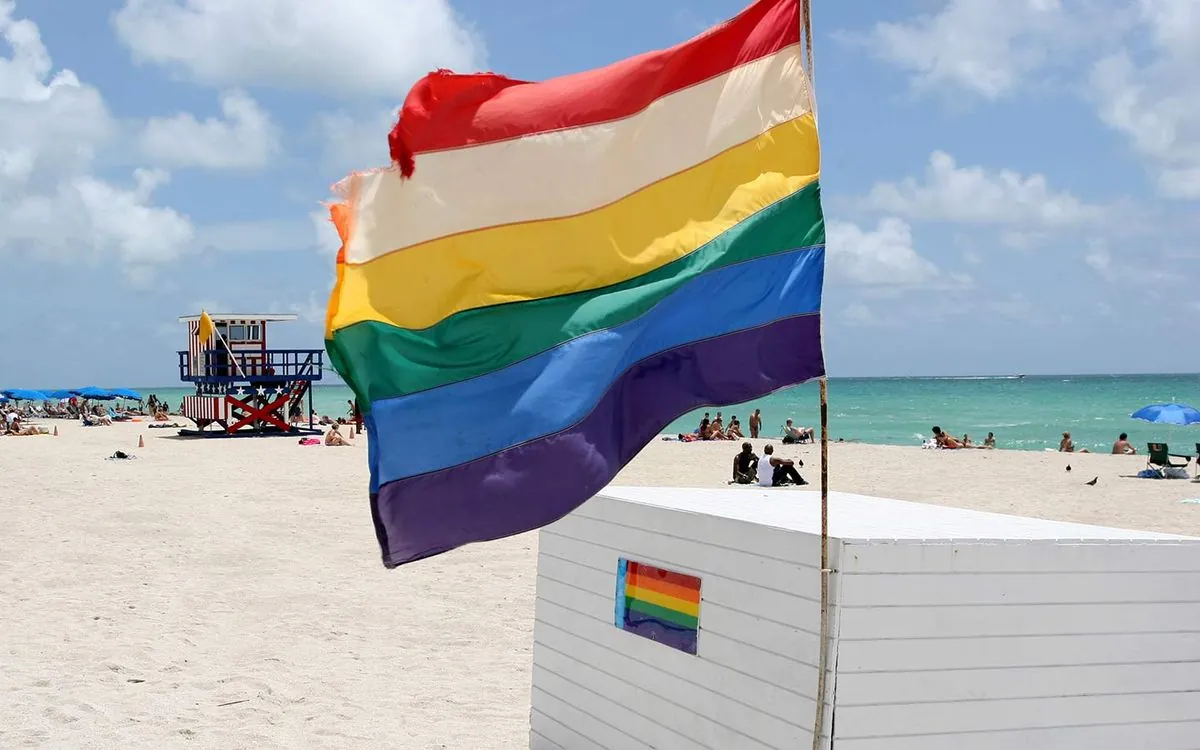Florida's tourism marketing agency, Visit Florida, has recently removed the "LGBTQ Travel" section from its website, a decision that has raised concerns among business owners catering to LGBTQ+ tourists. This change comes as part of a series of actions perceived as attempts to diminish the visibility of the LGBTQ+ community in the state.
Keith Blackburn, head of the Greater Fort Lauderdale LGBT Chamber of Commerce, expressed his dismay at the situation, stating, > "It's just disgusting to see this. They seem to want to erase us."
This move affects several Florida cities that have long been popular destinations for LGBTQ+ travelers, including Key West, Fort Lauderdale, Wilton Manors, and St. Petersburg. These locations have a rich history of LGBTQ+ inclusivity and culture. For instance, Key West elected the first openly gay mayor in Florida in 1983, while Wilton Manors boasts one of the highest percentages of same-sex couples in the United States.
The removal of the LGBTQ+ travel section is particularly significant given Florida's reliance on tourism. In 2023, the state welcomed nearly 141 million visitors, with out-of-state travelers contributing over $102 billion to Florida's economy. This substantial economic impact underscores the importance of maintaining Florida's appeal to all tourist demographics.
The change to Visit Florida's website occurs against a backdrop of controversial policies affecting the LGBTQ+ community in Florida. These include legislation restricting classroom instruction on sexual orientation and gender identity, bans on gender-affirming care for minors, and laws aimed at keeping children away from drag shows. Such policies have led to travel advisories being issued by civil rights groups, warning potential visitors about the state's political climate.
Despite these state-level actions, many Florida cities remain highly inclusive, with LGBTQ+-owned businesses and gay elected officials. St. Petersburg, for example, hosts the largest Pride celebration in Florida, while Fort Lauderdale is home to the world's first AIDS Museum and the Stonewall National Museum & Archives, dedicated to LGBTQ+ history.
Blackburn highlighted the challenge of promoting tourism in this context: > "It's difficult when these kinds of stories come out, and the state does these things, and we hear people calling for a boycott. On one level, it's embarrassing to have to explain why people should come to South Florida and our destination when the state is doing these things."
The contrast between state policies and local inclusivity presents a complex picture for potential visitors. While Florida has a long history of LGBTQ+ activism, including the state's first Pride parade in Miami in 1977, it has also faced ongoing challenges in passing comprehensive anti-discrimination legislation.
As the tourism industry grapples with these developments, the impact on Florida's economy and its reputation as a welcoming destination for all travelers remains to be seen. The situation underscores the ongoing tension between state-level policies and the diverse, inclusive communities that have long made Florida a popular destination for LGBTQ+ tourists.
